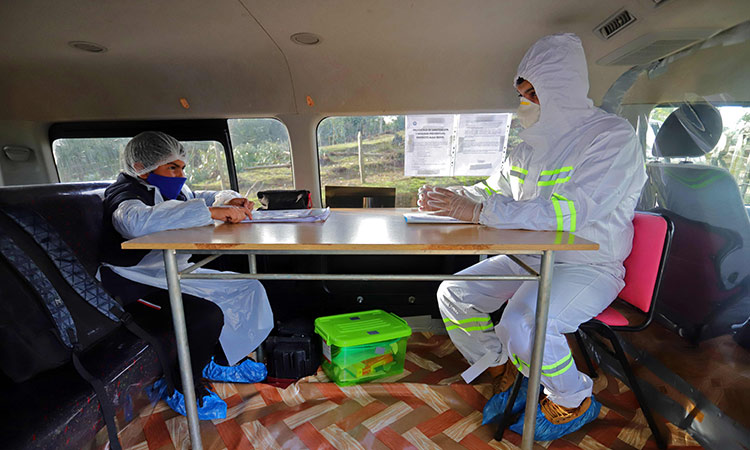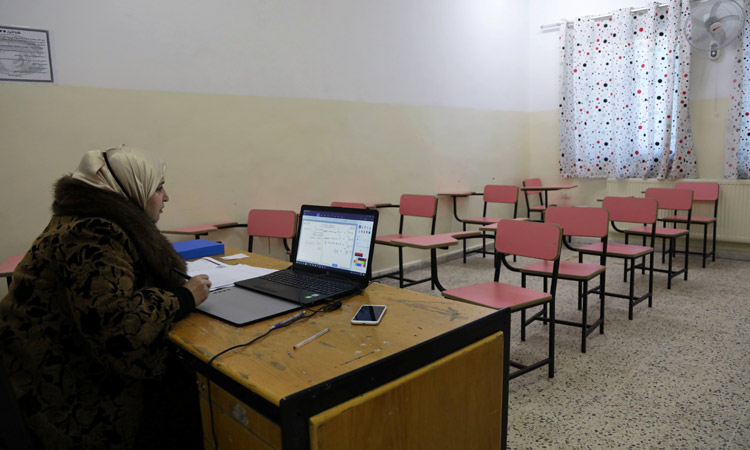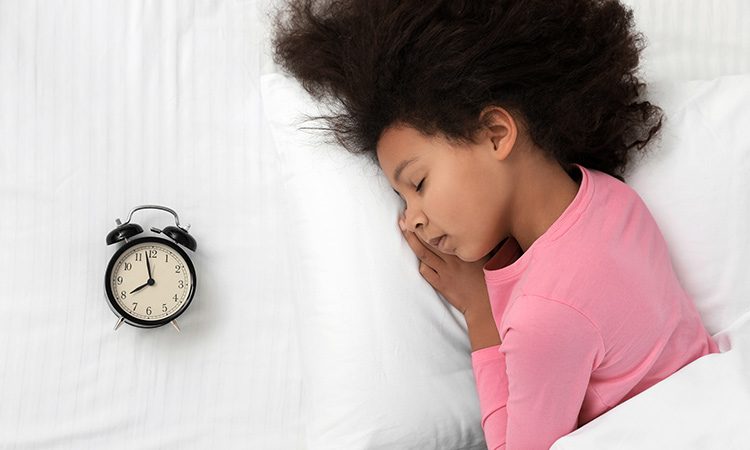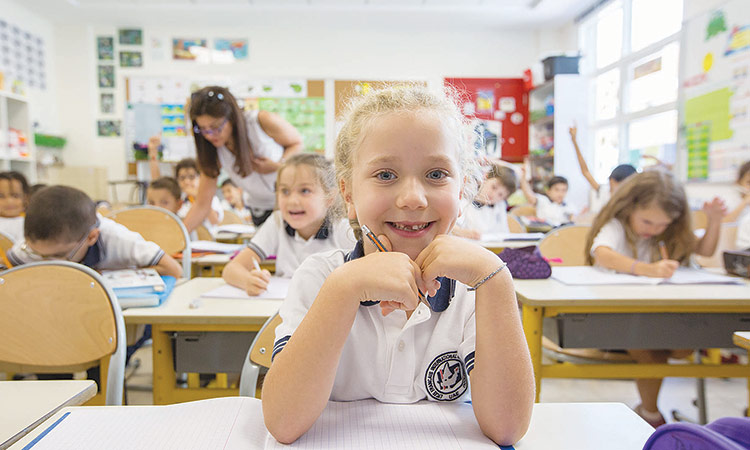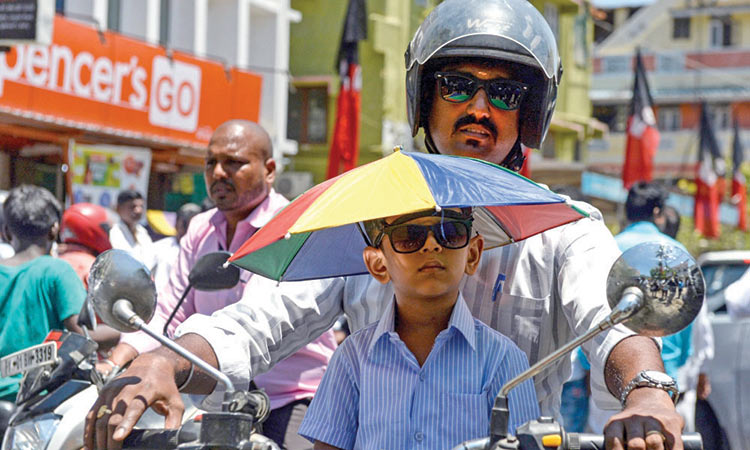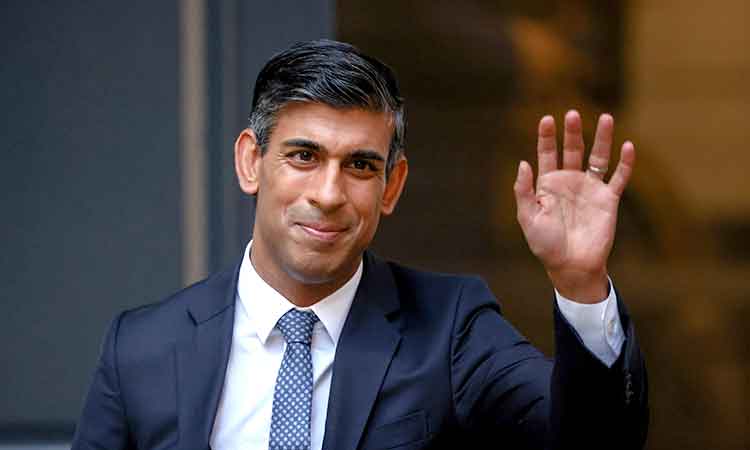Ukraine’s frontline kids simply want a classroom
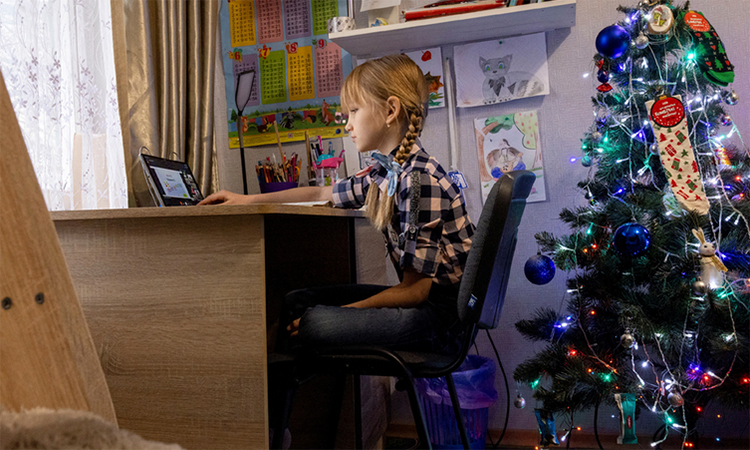
Ukrainian third-grader Arina Herasymova attends an online reading class in her bedroom in Sloviansk. File/Reuters
The war has deprived younger students, especially, of the opportunity to start off their schooling like most of their peers elsewhere. First the coronavirus upended Arina’s daily schedule, then came Russia’s February 2022 invasion, according to her mother Iryna, 32, who said the once-active child is visibly sad.
“I look at her now, and she has completely changed,” she said. “She doesn’t want to do anything.” Fighting rages as close as 25 miles (40 kilometres) away from their city, Sloviansk, in the eastern Donetsk region, which is under the regular threat of Russian air strikes. Arina’s teacher reminds her students that lessons are temporarily suspended if an air raid siren blares.
Local school director Anatoliy Pohorelov said classes in frontline areas like Sloviansk would remain remote unless better bomb shelters were built — or until the war ended. In the northeastern Kharkiv region, which borders Russia, officials have begun building heavily fortified underground schools to allow children to safely return to in-person studies. “Maybe when Ukraine retakes a major part of its territory, or all of its territory, we’ll be able to talk about mixed or in-person learning,” Pohorelov said. “But right now, we don’t have that opportunity.” As a result, both students and their parents say the lack of face-to-face interaction has taken a serious toll on the mental and social well-being of children.
“At school and in kindergarten, it was much more fun than online,” said third-grader Angelina Bondarenko, 8, who returned to Sloviansk last month for the first time since March 2022. “At school I had friends, like Liza, we were two friends. Like twins.” Both Angelina and Arina never meet their classmates, only know them from their little images online — an extraordinary situation given that most children forge their first true friendships at school. A recent report says Ukrainian children began their second straight school year in wartime, some heading to new classrooms underground, others bracing to run to bomb shelters to take cover from Russian missiles and drones.
Many, at home and abroad, stayed online for a fourth year, their education ravaged by Russia’s invasion and COVID-19. Russian air attacks have totally destroyed 1,300 schools since President Vladimir Putin launched his full-scale invasion of Ukraine in February 2022, according to data by the UN Children’s Fund, which recorded damage to many other schools. Education Minister Oksen Lisovyi reported this week that 84% of schools were now equipped with operational shelters.
“When he was studying online, there was not always an opportunity to get to a bomb shelter,” said Mariia Doloban, 32, whose 8-year-old son Oleksii starts the year at a new school in the capital Kyiv with a proper bomb shelter. “But at school, he will take cover every time the air raid siren goes off.” Doloban was one of millions of refugees who fled Ukraine, but like many others has since returned, saying she feels better back home than abroad, where children either study remotely or struggle in local schools. They fled the southern city of Kherson for Thessaloniki in April 2022, but her son Oleksii felt lost in a Greek school.
“Whenever I asked what he was doing at school, he often said that he was sleeping during classes because he was bored and could not understand anything,” said Doloban, who found herself bouncing around Ukrainian cities for a year after leaving Greece and is now living out the outskirts of the capital. Oleksii told his father, a doctor on the front line, in a video call that he was worried about starting school, but joined in with the other children dancing in a welcome ceremony on their first day. At another Kyiv school, 6-year-old Ulas Kyrychenko, kitted out with new stationery and a smart suit and tie, was looking forward to learning how the sea creates waves and making friends after spending time as a refugee in Germany during the early part of the war.
His mother Klarysa Kyrychenko said she knew when she returned to the Kyiv-area suburb that shelling and bombing would continue, so she chose a school in the city in an old building with a basement bomb shelter. She protested when her son said he wanted to join the Ukrainian military like his father, who is fighting in the east.
“Russia is very big, the biggest country on Earth,” he told Reuters, pointing it out, along with the much smaller Ukraine, on his toy globe at home. “I want us to win.” In the eastern city of Kharkiv, it can take less than a minute for a missile from Russia to arrive — so authorities there have had to improvise a way to get kids back into school. Classrooms have been created in the city’s ornate Soviet-era metro stations, some with views of chandeliers hanging over colonnaded platforms below.
More than 1,000 children will be able study in person in the 60 schoolrooms that have been built, Mayor Ihor Terekhov has said, a development welcomed by many parents. “They will be able to socialise with each other there, find a common language, communicate,” Iryna Loboda said on a Kharkiv street where she was out with her school-aged son. Not everyone is on board with the plan. “Children’s safety comes first,” another mother, Tetiana Bondar, said. “My children will attend online classes, although our school offered a bus to transfer children to the subway.”
Reuters
